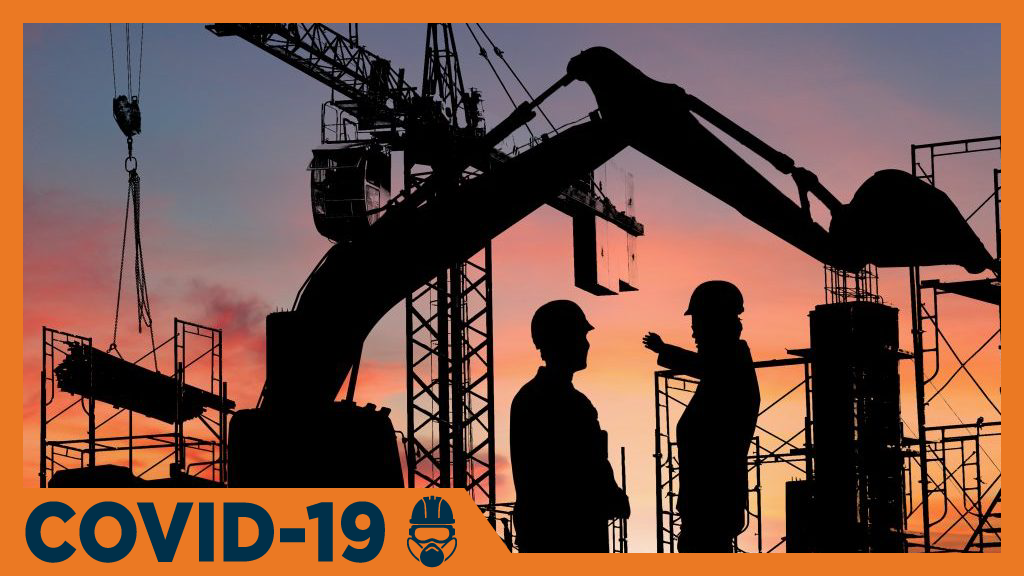Celebrations were muted as Ontario construction stakeholders reacted to the Ford government’s decision that the construction sector would be considered essential and thus could continue to operate during the COVID-19 pandemic.
Each of six stakeholders contacted focused on the heavy responsibility they said the sector would bear to keep jobsites safe and sanitary to prevent the spread of the virus — a point emphasized for the second day in a row by Ontario Premier Doug Ford during his daily COVID-19 update March 24.
Ford announced the afternoon of March 23 that multiple sectors would be deemed unessential and shut down to help fight the spread of the virus. That evening a list of 76 business sectors was posted on the government website, deemed “essential workplaces.”
Construction projects associated with health care, transit, transportation and transit, among other project types, were listed specifically and there was a catch-all category: “construction work and services, including demolition services, in the industrial, commercial, institutional and residential sectors.”
He talked about the industry needing to get its act together… Those sites ought to be shut down and they will be shut down,
— John Mollenhauer
Toronto Construction Association
“The list is quite different from what I expected,” commented Ian Cunningham, president of the Council of Ontario Construction Associations (COCA). “I was expecting more specificity in the list. I thought there would be some elements of construction that would be essential and some not and I thought perhaps some projects would be defined as essential and some not.
“But it appears that ICI together will continue as it has been before.”
Toronto Construction Association president and CEO John Mollenhauer acknowledged the challenges contractors faced given the warnings issued by the premier. Ford said March 24, “Yesterday I put the construction industry on notice. Our Chief Prevention Officer has sent out new guidelines for construction sites and there are currently dozens of provincial labour inspectors at large jobsites to ensure there are appropriate protocols in place. These inspectors will not hesitate to shut sites down.”
“It’s kind of good news and bad news,” Mollenhauer said, discussing the determination of essential services. “On one hand we expected it and weren’t at all surprised the premier listed construction as one of the essential services. He talked about the industry needing to get its act together, and by that he meant the bad eggs that are not meticulous about protocols.
“Those sites ought to be shut down and they will be shut down.”
There is grave concern among workers about the conditions that go with keeping this sector open,
— Patrick Dillon
Provincial Building and Construction Trades Council of Ontario
Four major provincial construction associations had issued a statement urging the provincial government to keep construction sites open but boost health and safety inspections — besides COCA, the signatories were the Provincial Building and Construction Trades Council of Ontario, the Construction Employers Coordinating Council of Ontario (CECCO) and the Construction and Design Alliance of Ontario (CDAO).
Asked about the essential-industry designation, Building Trades business manager Patrick Dillon focused on safety concerns.
“There is grave concern among workers about the conditions that go with keeping this sector open,” Dillon said.
“I can’t say more until I talk to the minister (of Labour, Training and Skills Development) and the premier to see what sort of safety net they are putting in place.”
CECCO executive committee Wayne Peterson was similarly hesitant to praise the designation.
“CECCO has no formal position on keeping the construction sector open,” wrote Peterson in an email. “Our member employer bargaining agencies and the contractors within some of the agencies are divided on whether this is the right decision or not.”
CDAO board of directors’ chair Sandro Perruzza remarked that the definition of what is an essential service could change based on circumstances so there was incentive for the sector to ensure it ramped up health and safety at its jobsites.
“I am a little surprised that it is not just construction, looking at all the businesses that are considered essential,” said Perruzza, who is the CEO of the Ontario Society of Professional Engineers. “I think we are unbelievably in the early stages of the onset of the virus in Canada. I would expect as things change and the number and the severity of the cases increase, that there would be a further ranking of what is considered essential and what not.
“If it does escalate the way it has done in some countries, the ramifications will be long term. I would rather have short-term pain and get over this quickly and try to get back to some semblance of normality.”
Karen Renkema, Ontario vice-president of the Progressive Contractors Association, said her organization has taken note of the warnings of the premier regarding jobsite safety.
“I believe the industry as a whole needs to be very vigilant in going above and beyond in an effort to address every single matter that has to do with health and safety,” she said.
“With our members, protecting public health is our first priority. We support whatever the government and public health authorities are doing to keep workers safe and help stop the spread of the virus.”
Besides reforming practices at jobsites, Renkema said, there also has to be broader measures put in place to ensure the sector is able to remain healthy.
“Owners, public and private, need to be part of the solution and recognize that if we are crewing down or working with skeleton crews in order to keep the project running, owners cannot continue to push projects on the same schedule as before with the same financial implications,” she remarked. “Obviously productivity is not going to be the same as it was.”
Follow the author on Twitter @DonWall_DCN.











Recent Comments